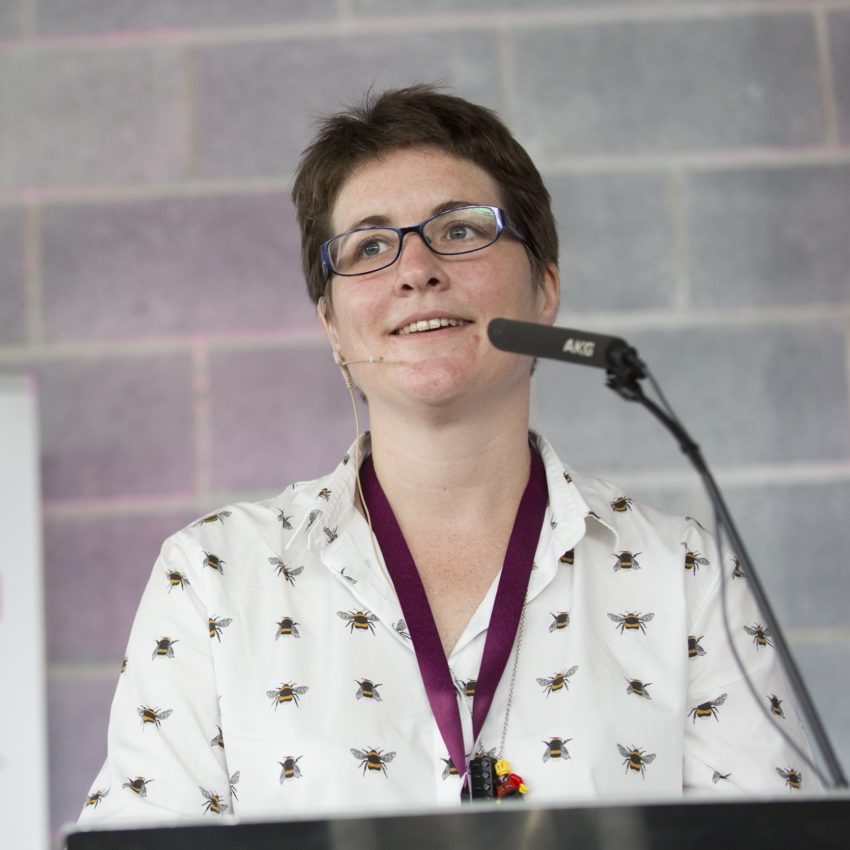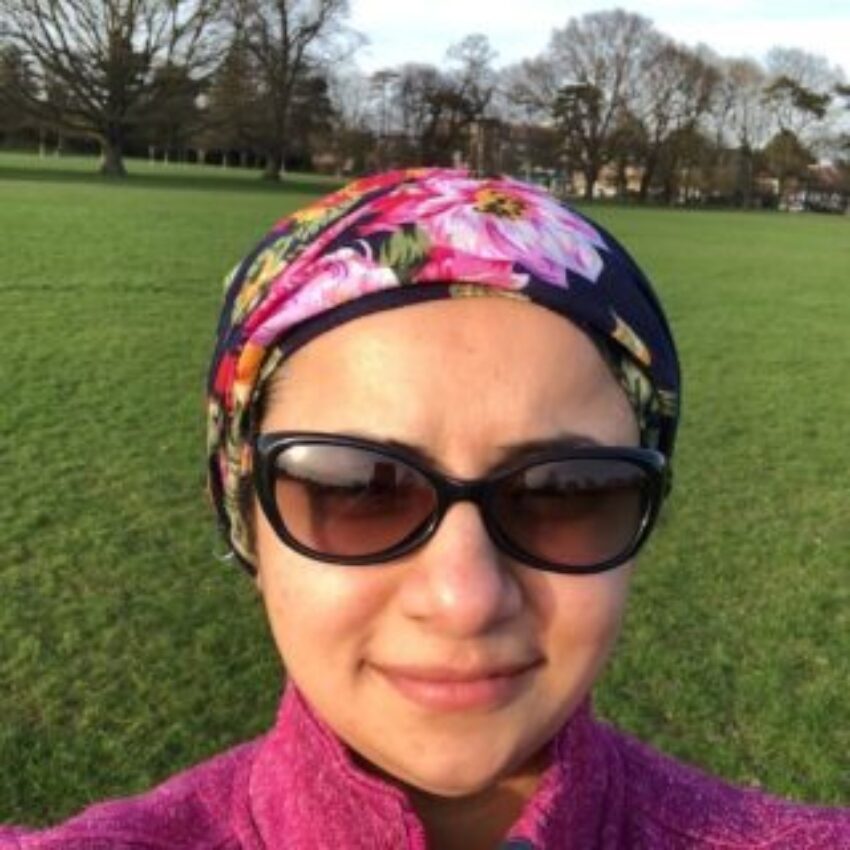Highlights
-
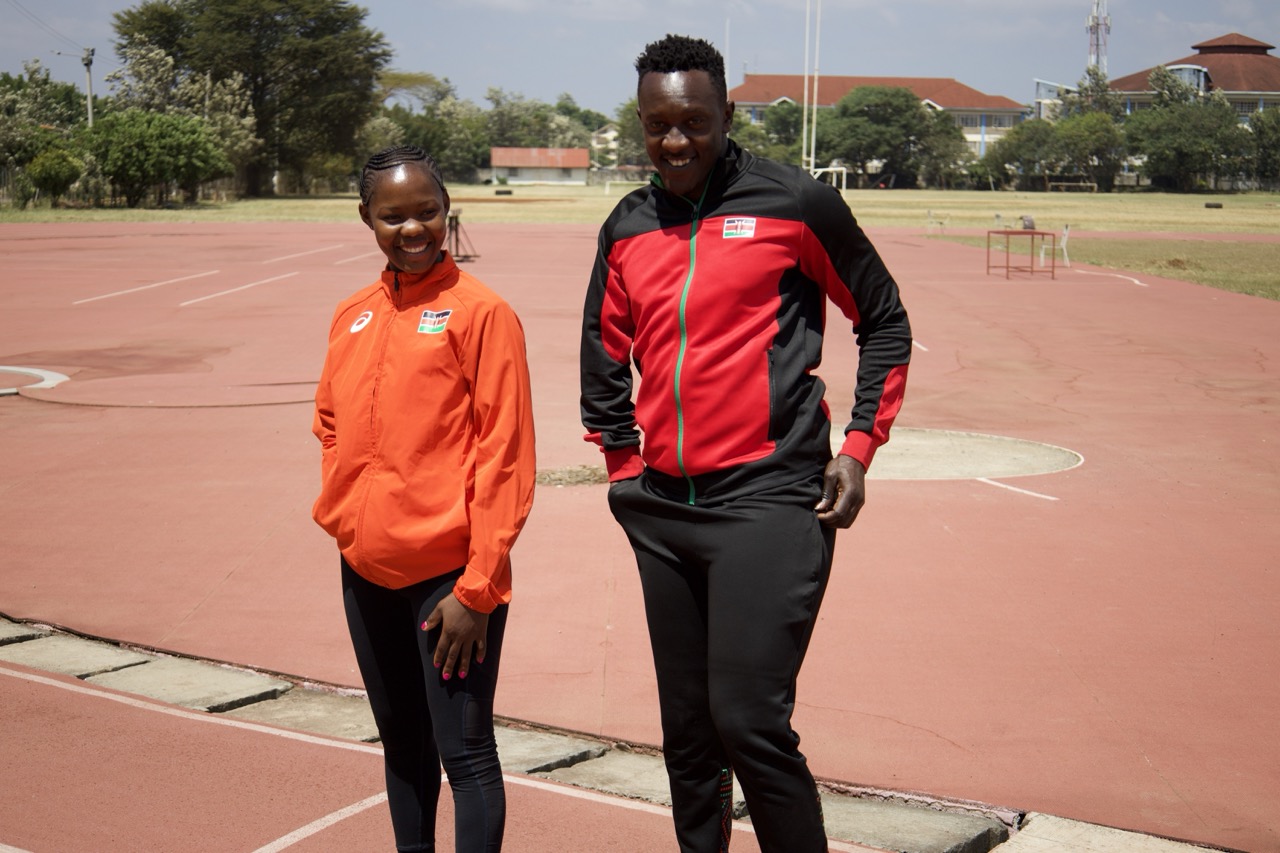
Kenyan para athletes
Harrison KamauMay 1, 2025KenyaAlongside Paris 2024 we explored innovative mechanisms to amplify para sport activities and drive change. Working alongside Kenyan athletes and the youth movement and award-winning media house Shujaaz – we were able to reach new audiences with the aim of dismantling stereotypes and sharing first person narratives of entrepreneurship, sporting achievement and community participation. Thought the narrative of successful para-athletes we have looked to spark youth interest to expanding the pipeline of future sporting talent. A vivid illustration of these efforts can be seen in the experiences of two Kenyan para-athletes who competed on the international stage at Paris 2024 – and were part of the team that ensured Kenya’s most decorated Paralympic team since 2008 Beijing. Samson Ojuka a long-jumper and sprinter. Here are the stories of the two para athletes.
-
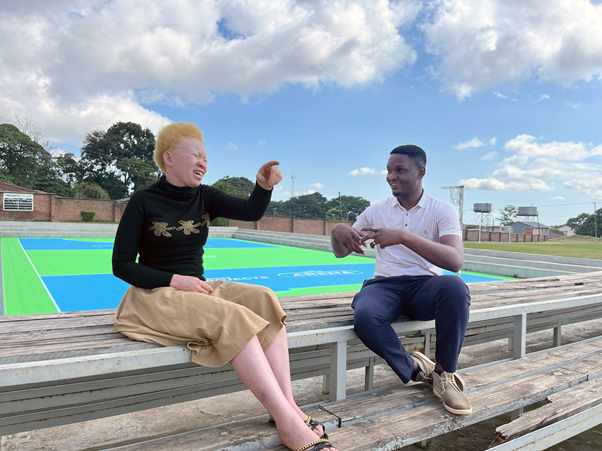
Amplifying Para Athlete Voices Through Radio Drama.
Story WorskshopApril 22, 2025MalawiIn the lead up to the Paris 2024 Paralympic Games six episodes of the popular Malawian radio drama series, Zimachitika (These Things Happen) were broadcast as a creative way of building interest in Para sport. In Malawi, radio remains a cornerstone of communication, with a listenership rate of 71.2% of the national population . This makes it the most consumed and trusted source of information in the country. With 76 licensed radio stations, ranging from national to community levels, radio has the unparalleled ability to reach diverse audiences. For 28 years, programs like Zimachitika, produced by Story Workshop Educational Trust (SWET), have leveraged this reach to address pressing social issues, including discrimination against people with disabilities. By weaving authentic narratives into its storytelling, the drama not only entertains but also educates and challenges societal biases, a strategy known as ‘edutainment’.
-
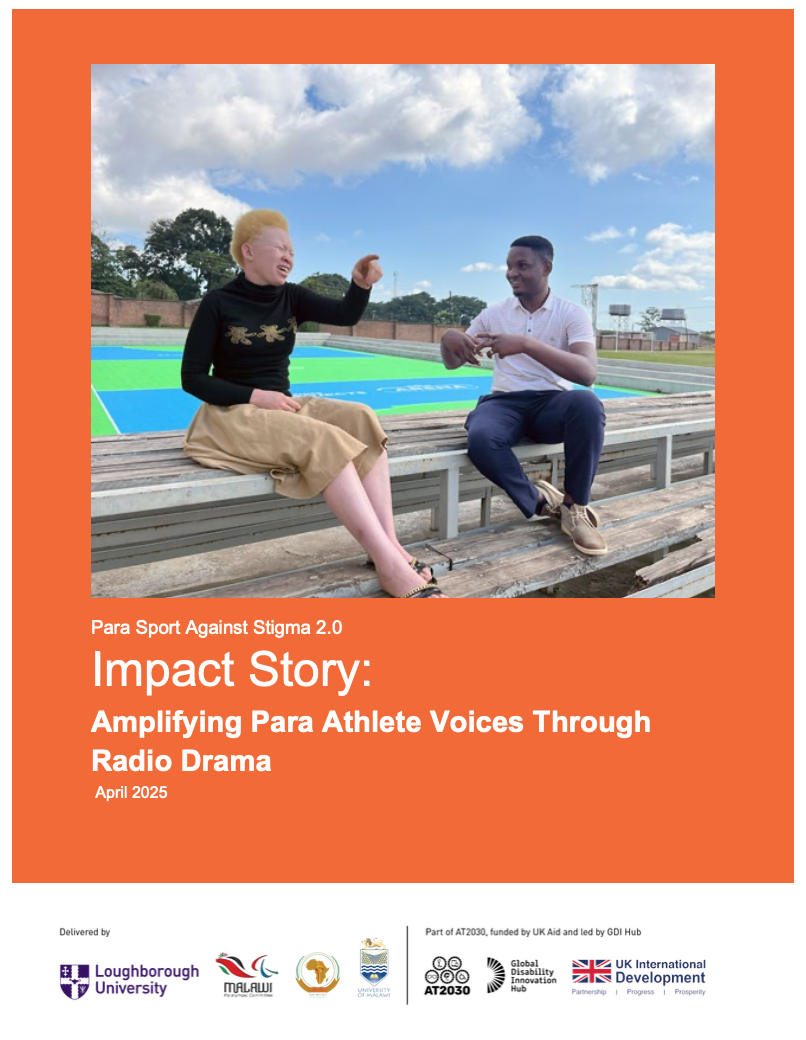
Impact Story: Amplifying Para Athlete Voices Through Radio Drama
Loughborough University, University of Malawi, Malawi Paralympic CommitteeMarch 31, 2025Gladys Chiwinja, a Malawian Para-athlete specializing in sitting volleyball and shot put, and Innocent Katsache, a scriptwriter at Story Workshop Educational Trust (SWET), sat down to discuss how sparking interest through radio drama contributed to challenging discrimination.
-
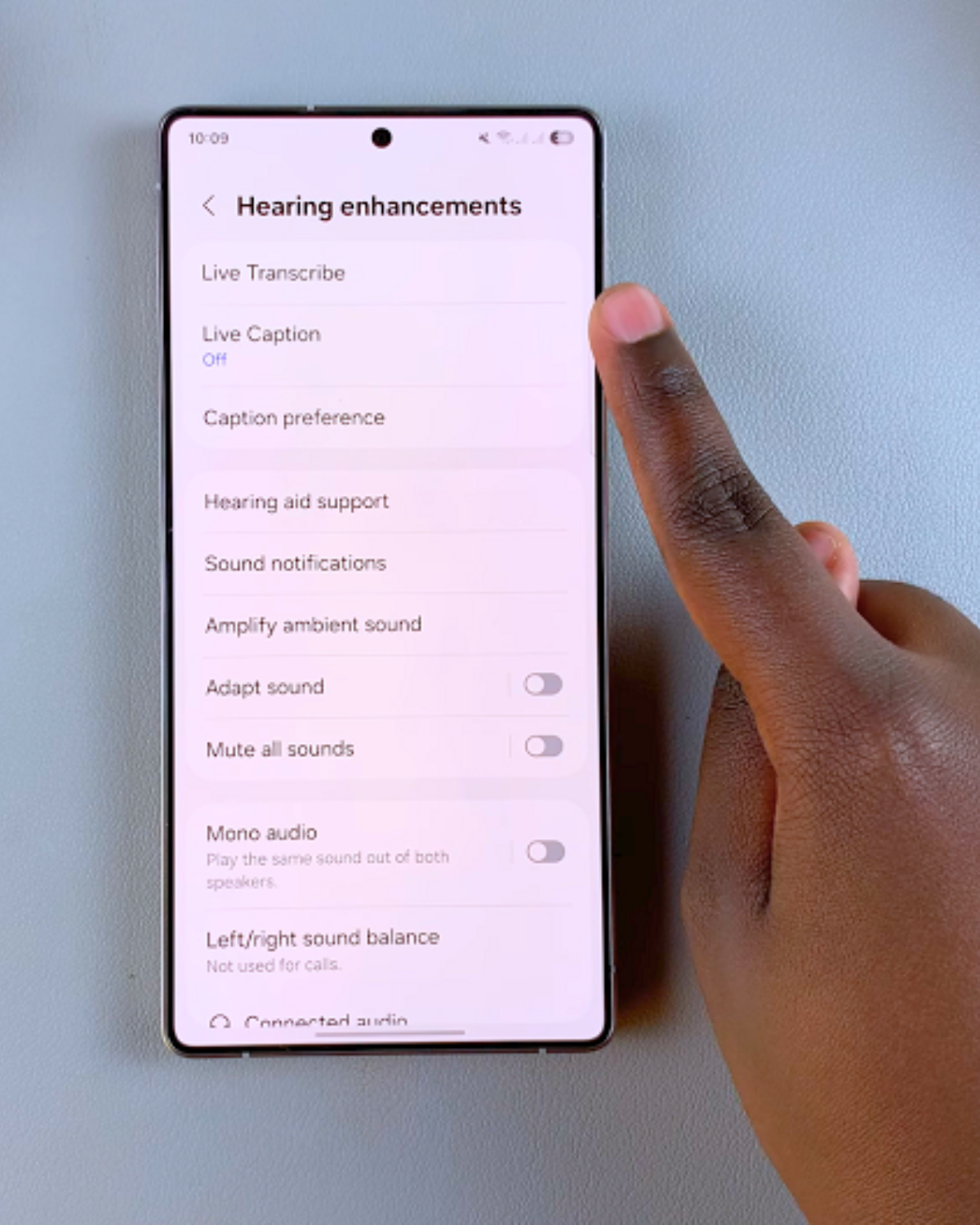
Joseph Etyang: Mobile as AT
Joseph EtyangMarch 28, 2025Joseph Etyang, a Deaf professional in Nairobi, shares how a specialised phone from Kilimanjaro Blind Trust Africa has transformed his daily life. With real-time captions, sound alerts, and accessible messaging, he can now communicate more independently; at work, at home, and beyond.
-
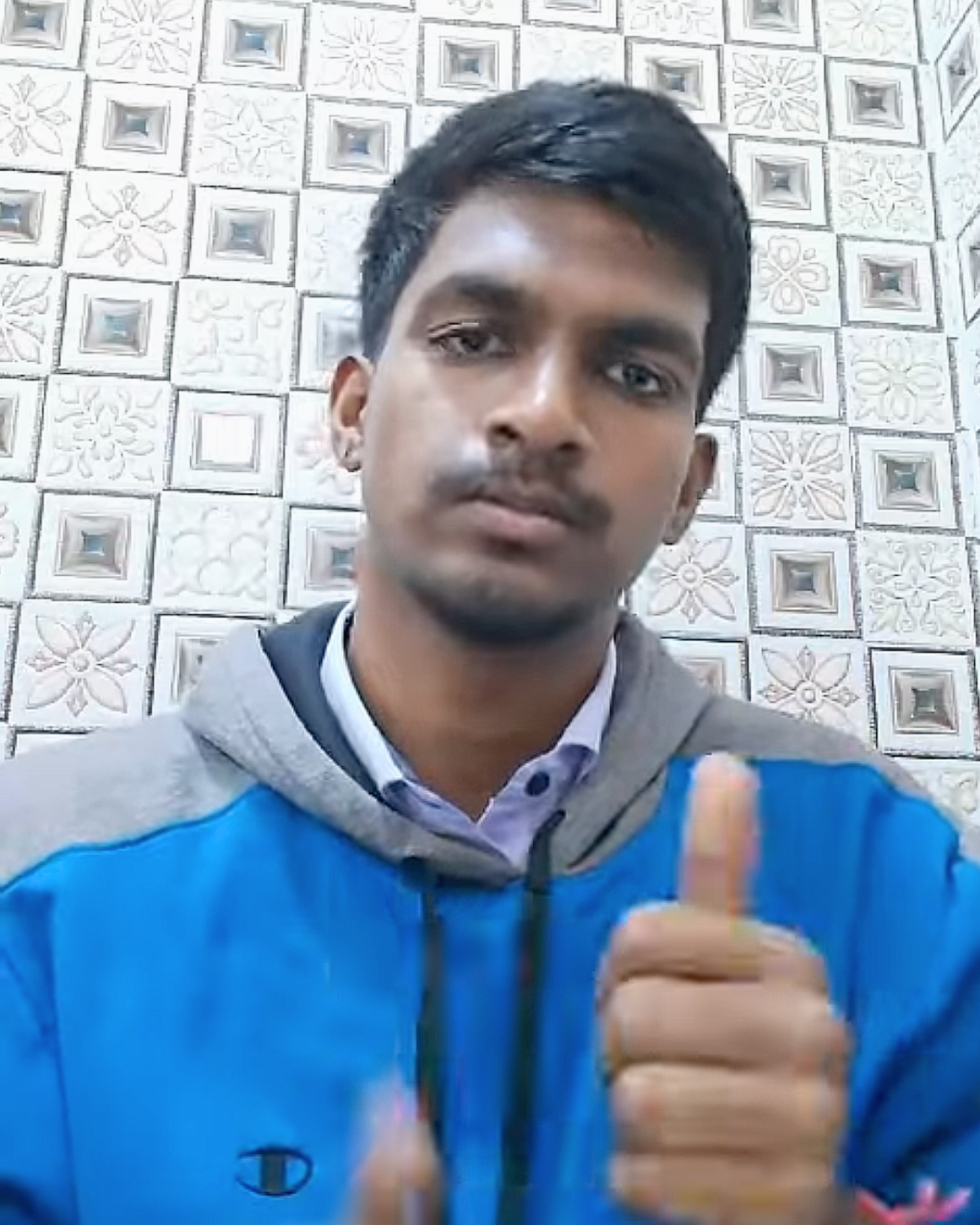
Bala Murugan
Global Disability Innovation HubMarch 28, 2025As mobile phones increasingly incorporate assistive features, they offer more accessible options for communication and daily activities. However, understanding how these technologies are used in low- and middle-income countries, where specialised devices may be less available, is crucial.
All Impact Stories
-
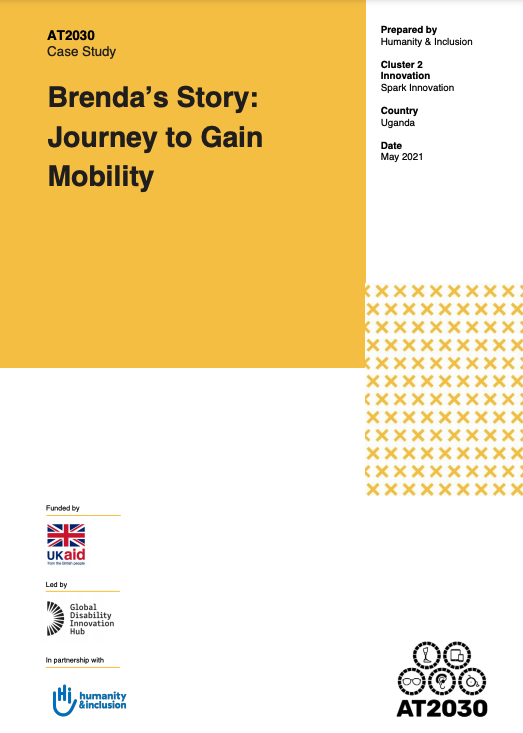
Brenda's Story
Humanity & InclusionJune 23, 2021UgandaImpact Stories10-year-old Brenda who lives with her mother in Ofua, Rhino Camp, Arua district in Uganda was born with hydrocephalus, a condition in which build-up fluid is stored in the cavities deep within Brenda’s brain. The extra fluid has put pressure on Brenda’s brain which the mother felt would cause damage to her daughter’s brain, as she narrates,” My daughter’s head has enlarged since she was born, she experiences headache, has cognitive difficulties, impaired vision and she has loss coordination and incontinence”.
-
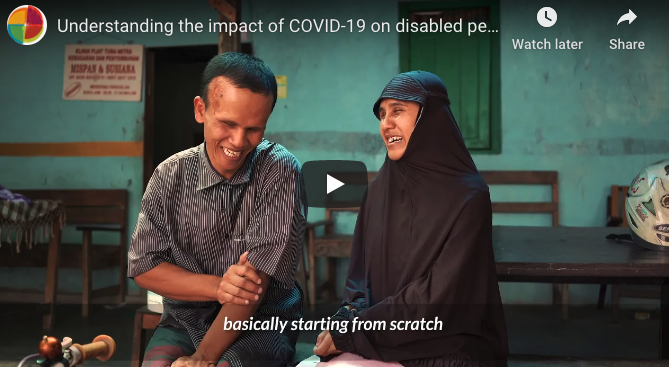
Video: Understanding the impact of COVID-19 on disabled people's daily lives
Development Planning Unit (DPU)Dec. 1, 2020IndonesiaAs we prepare to celebrate International Day of Persons with Disabilities as part of the action research “AT2030: Community led solutions”, we reflect on this year’s theme, “Building Back Better: toward a disability-inclusive, accessible and sustainable post COVID-19 World”.
-
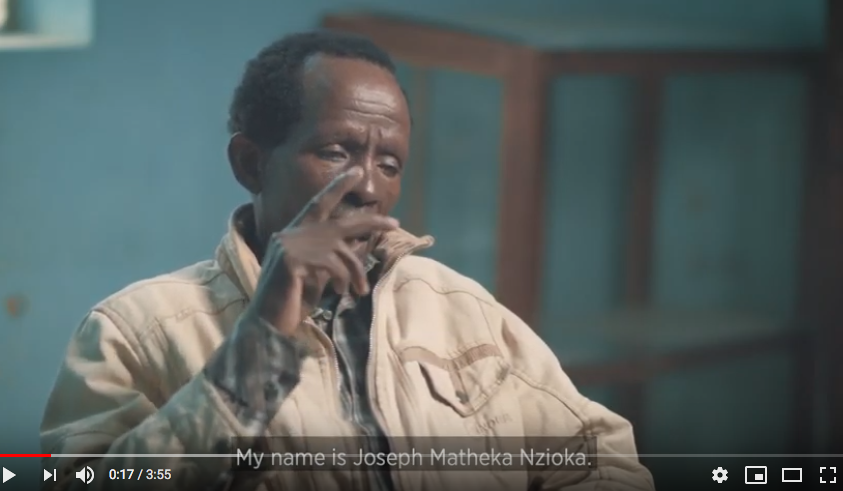
Video: How does mobile empower me? Joseph’s story
GSMADec. 20, 2019KenyaJoseph Matheka Nzioka is deaf and works in construction, plumbing, roofing and welding. He lives in Ngoloni, Kenya. Mobile helps Joseph do his work and be financially included.
-
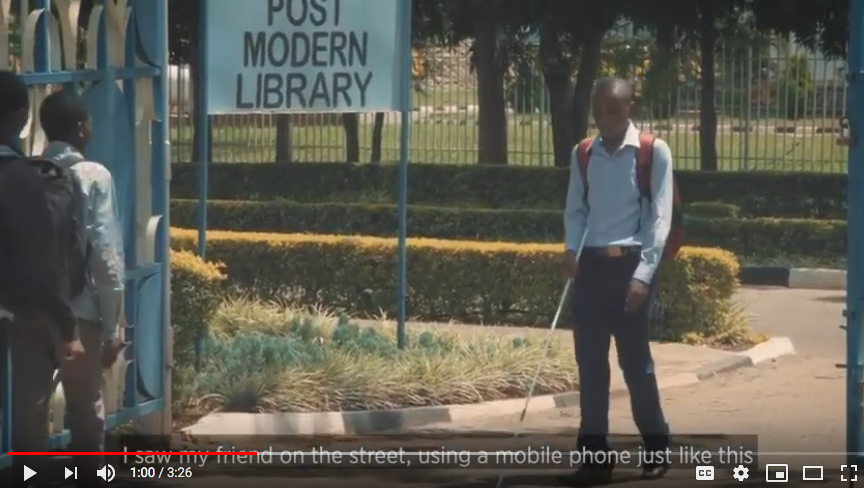
Video: How does mobile empower me? John’s story
GSMADec. 11, 2019KenyaJohn was born blind, he is a student at Kenyatta University and lives in Nairobi. He uses his mobile device to study and live an independent life.
-
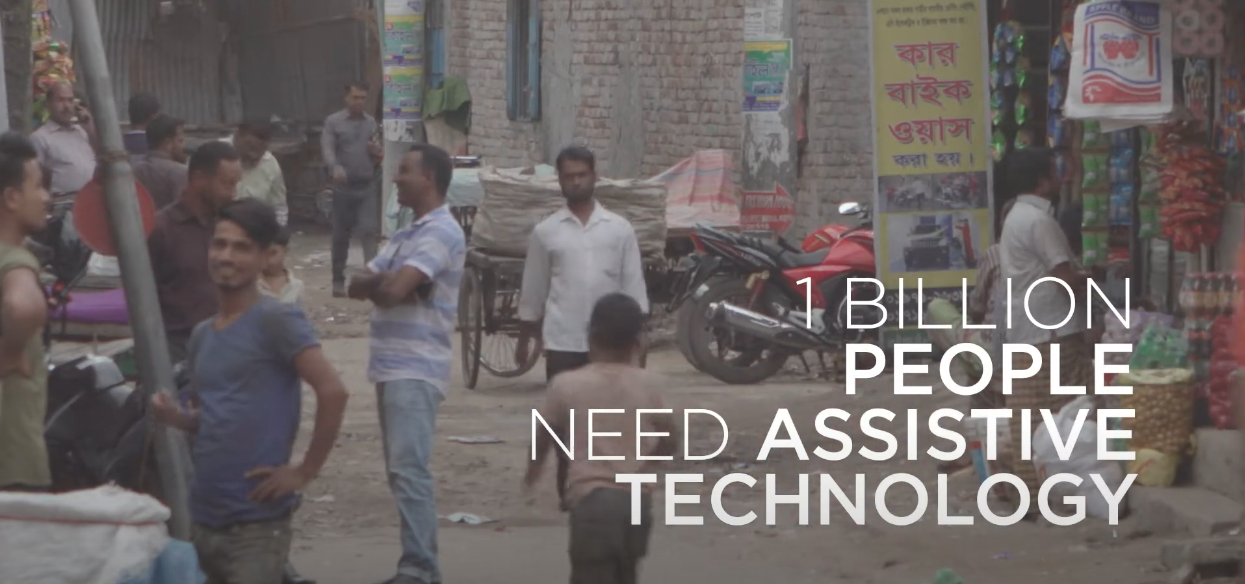
Video: How mobile operators are driving inclusion of persons with disabilities
GSMA, Clara ArandaDec. 3, 2019This case study by GSMA aims to highlight how mobile operators are closing the mobile disability gap and also driving inclusion. The report spotlights two mobile operators that are championing disability inclusion– Safaricom and Turkcell.
-
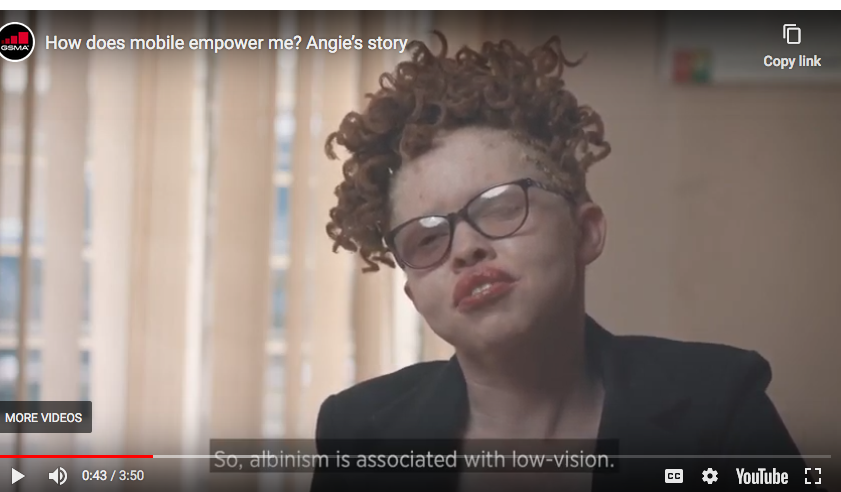
Video: How does mobile empower me? Angie's story
GSMADec. 3, 2019KenyaAngie has albinism and has low-vision. She is a student, an actress and a model. 'Mobile technology has helped me to learn more about albinism and access information. Also to use financial services'.
-
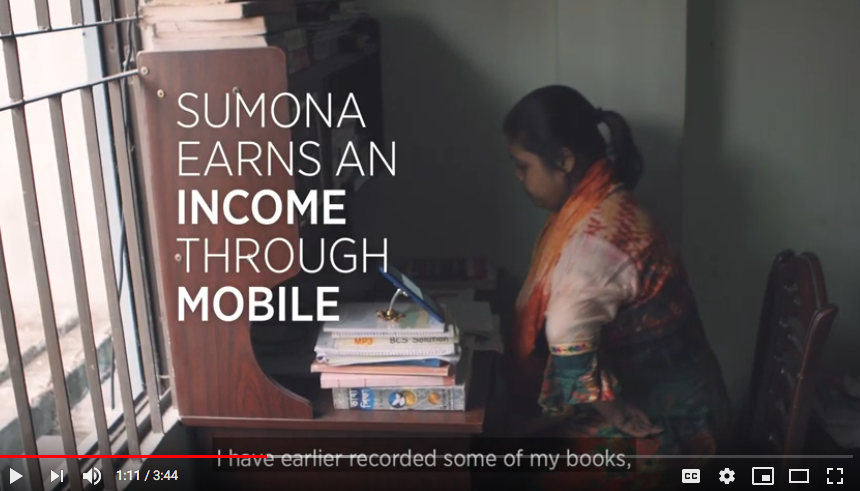
Video: How does mobile empower me? Sumona’s story
GSMANov. 29, 2019BangladeshSumona Khan lives in Dhaka, Bangladesh. She is preparing herself for a government job. Sumona earns income through mobile. She records books for blind users.
-
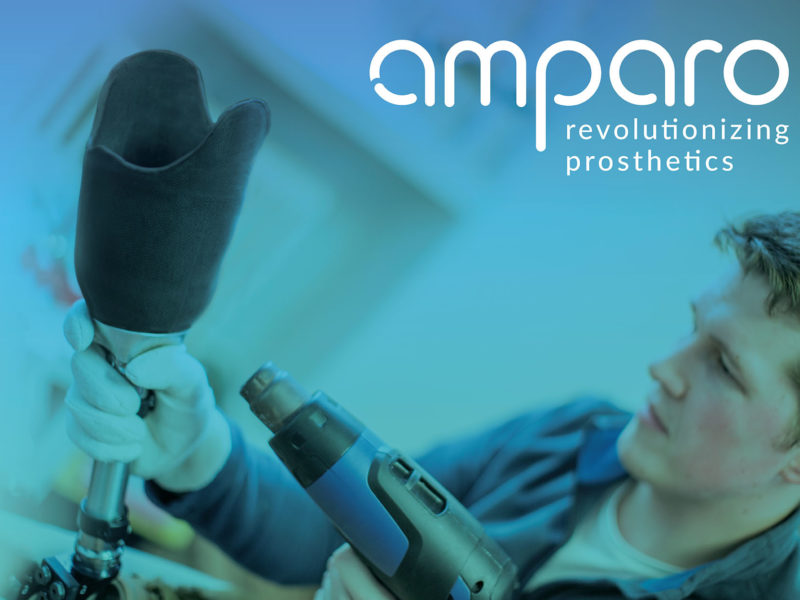
Video: Changing Prosthetic Service Delivery with Amparo
Amparo ProstheticsJan. 31, 2019To reduce the cost and difficulties of lower limb prosthetic manufacturing, Amparo GmbH has developed a new socket (the part of the prosthetics that connects with the person’s residual limb) that is made of thermoplastic material which can be molded directly on the person’s limb.
-
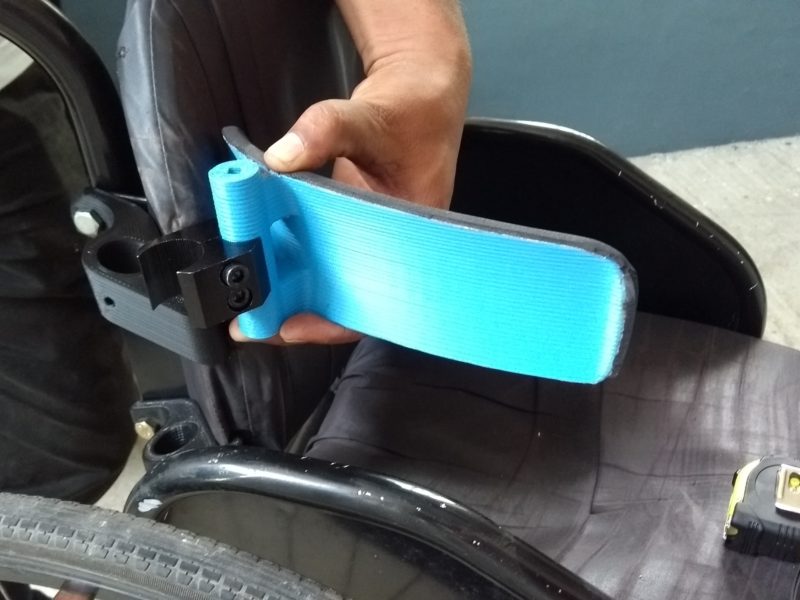
Digital Technology, to Revolutionise Wheelchair Provision with Motivation
MotivationNov. 15, 2018As part of the AT2030 programme, the Global Disability Innovation Hub supports Motivation in testing their new provision system in Kenya to evaluate the quality of the new designs and understand how distributed manufacturing through 3D printing could augment current wheelchair service, provision models.
-
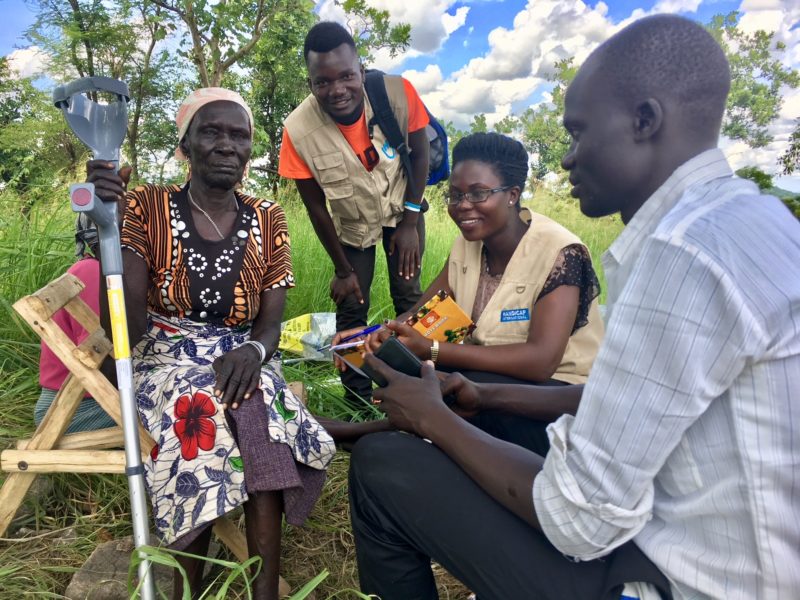
Trialing 3D Printed Bespoke Orthotics to Refugees with Humanity and Inclusion
Humanity & InclusionNov. 15, 2018As part of the AT2030 programme, Humanity & Inclusion is testing the feasibility of extending their new digital manufacturing approach to provide bespoke orthotics devices across three refugee settlements which are located in North West Uganda. GDI Hub has partnered with Humanity & Inclusion to support them with the research components of the project, to ensure that robust evidence is collected and analysed across all sites. The long term goal of this project is to create digital manufacturing hubs across the region that can support better provision of bespoke prosthetic and orthotic devices to people who live in refugee camps in the East African region.
Previous Page
Impact Stories & Community Collaboration
Storytelling can be a great tool to amplify the voices of disabled people and have their voices heard. Building on our previous work, this project explores ways for creative expressions of disabled people’s lived experiences through multi-sensory impactful storytelling.
Storytelling is the oldest form of knowledge sharing and learning that transcends geographies, cultures, and generations. In African and indigenous cultures, the storytelling tradition sustains communities, validates the experiences of indigenous people and nurtures inter-generational relationships and knowledge sharing. Telling stories also helps regain a sense of belonging, collective identity, and connection to the land.
Storytelling can be a great tool to amplify the voices of disabled people and have their voices heard. Building on our previous work, this project explores ways for creative expressions of disabled people’s lived experiences through multi-sensory storytelling. Sharing experiences and stories this way is the first step towards helping individuals develop a voice and skills to advocate for their rights and access to AT. We also explore ways to use technology to amplify these stories to create a positive impact on disability inclusion and improved AT provisions across LMICs.
Research
Social Media as Disability Self-advocacy Tool
This project explores the role of social media as a self-advocacy tool for disabled people. Using a mixed-methods human-centred approach, this project will generate in-depth insight into how disabled people use social media for advocate for disability rights, the barriers and facilitators that impact socia media use, and a toolkit to better serve disability storytelling through social media.
Activities
14 March 2023: AT Storytelling Workshop with International Disability Alliance, Geneva, Switzerland
Outputs
- Maryam Bandukda, Catherine Holloway, Diane Bell, Victoria Austin, "Challenges to disabled people’s participation in digital activism: A global south perspective", CHI 2023 Workshop: Supporting Social Movements through HCI and Design Research, https://sites.google.com/view/hcisocialmovements
- Maryam Bandukda, Catherine Holloway, "Bridging the disability divide in the global south through digital disability inclusion", CHI 2023 Workshop: HCI Across Borders: Towards Global Solidarity, https://hcixb.org/
People
